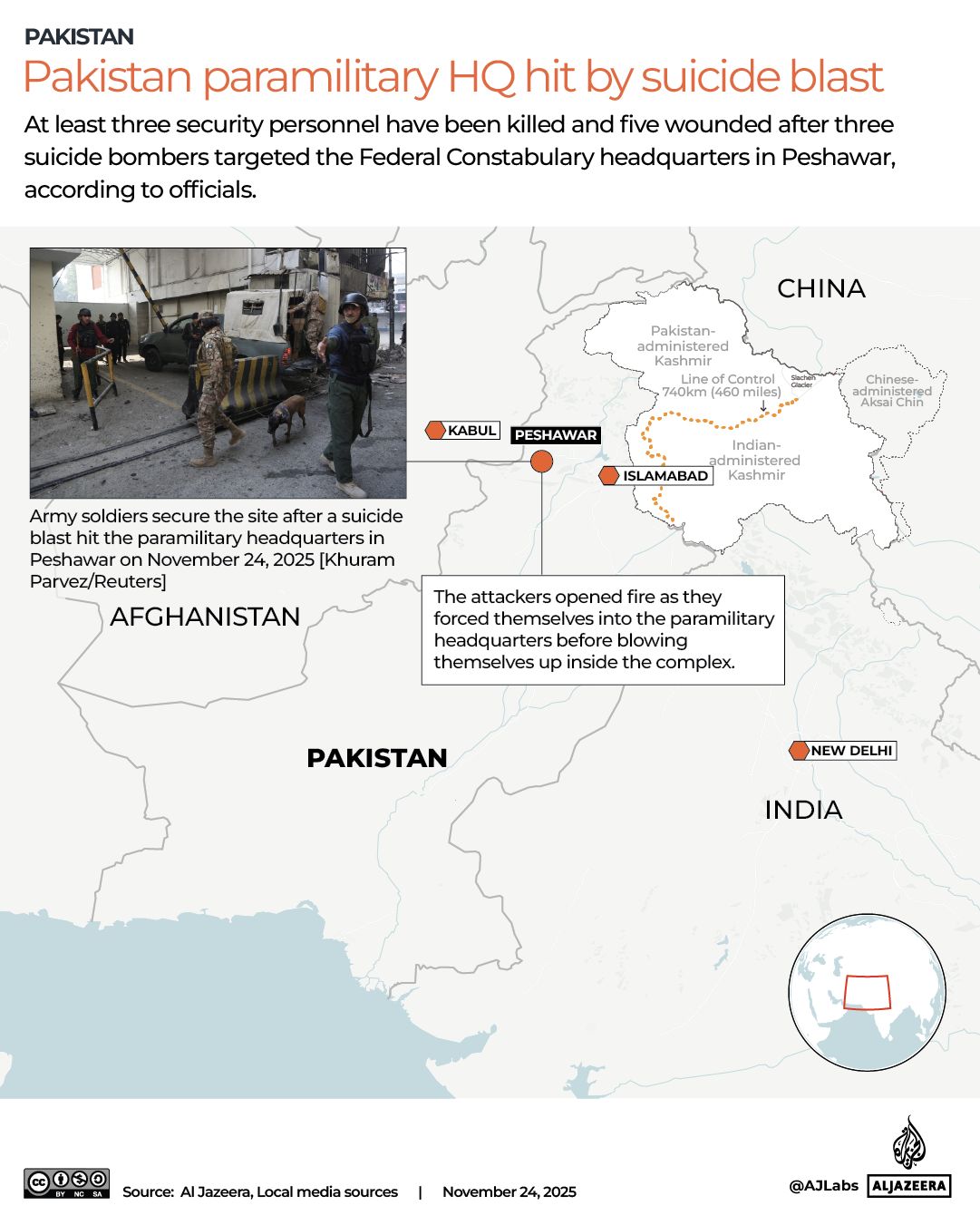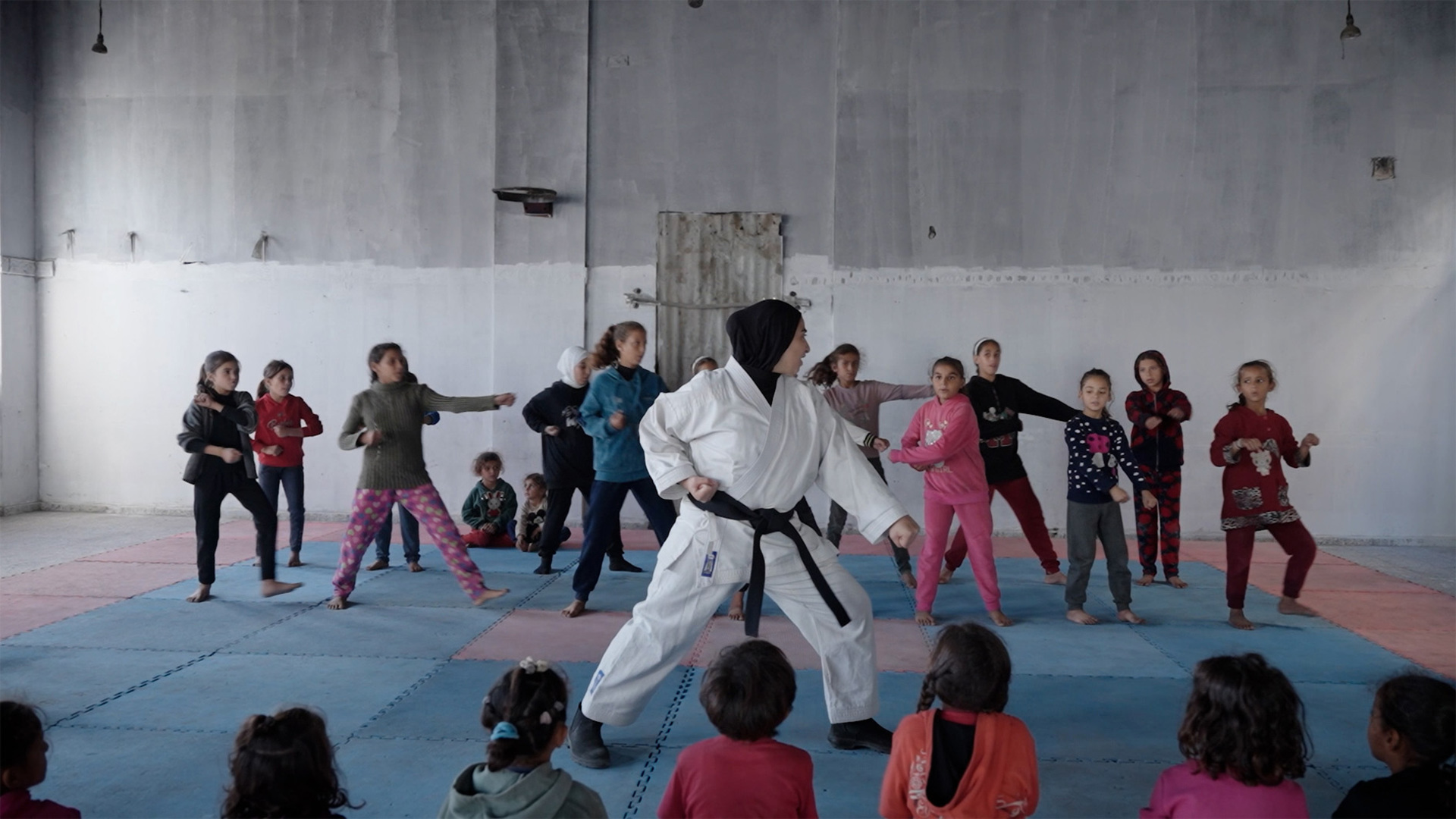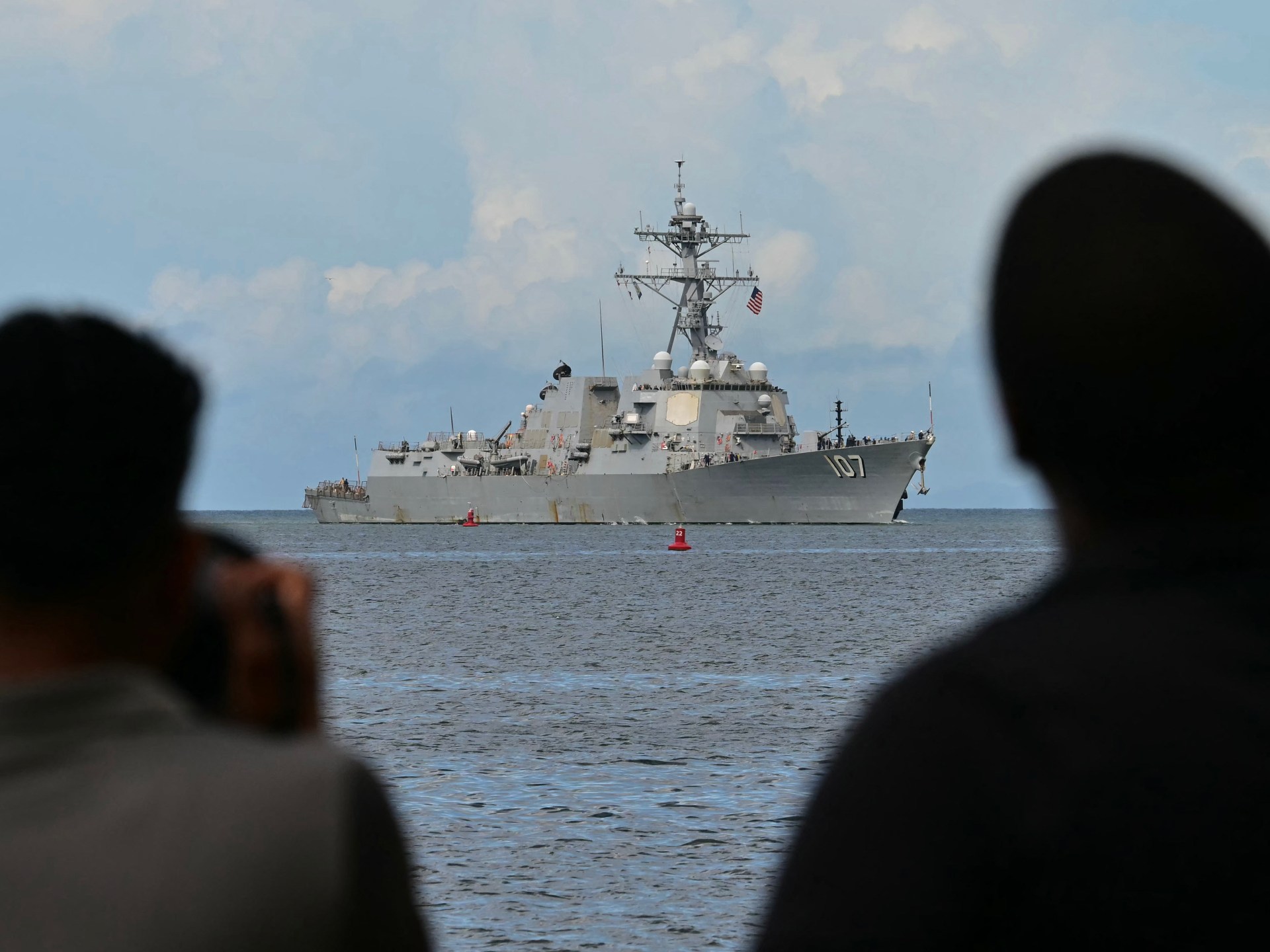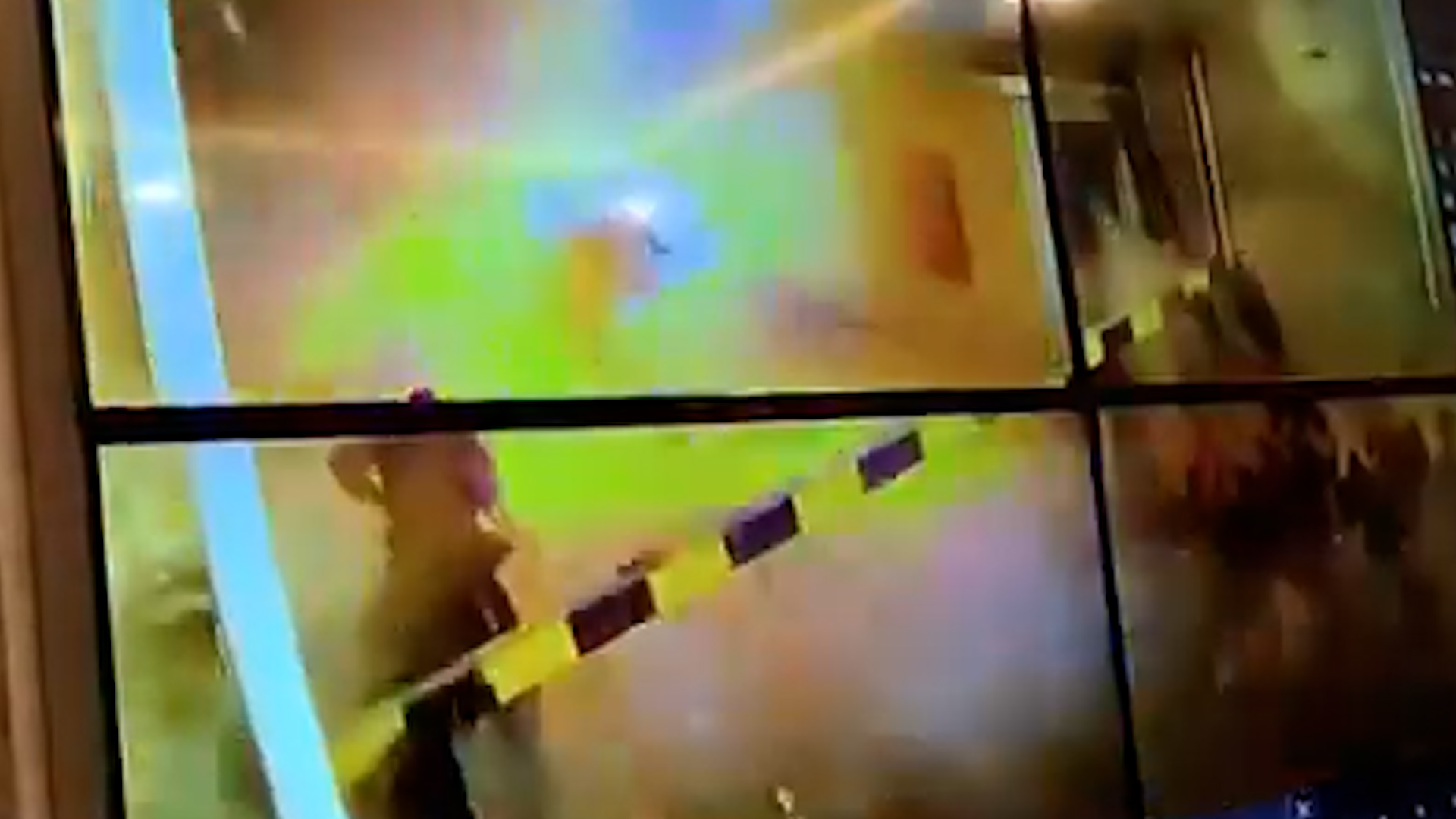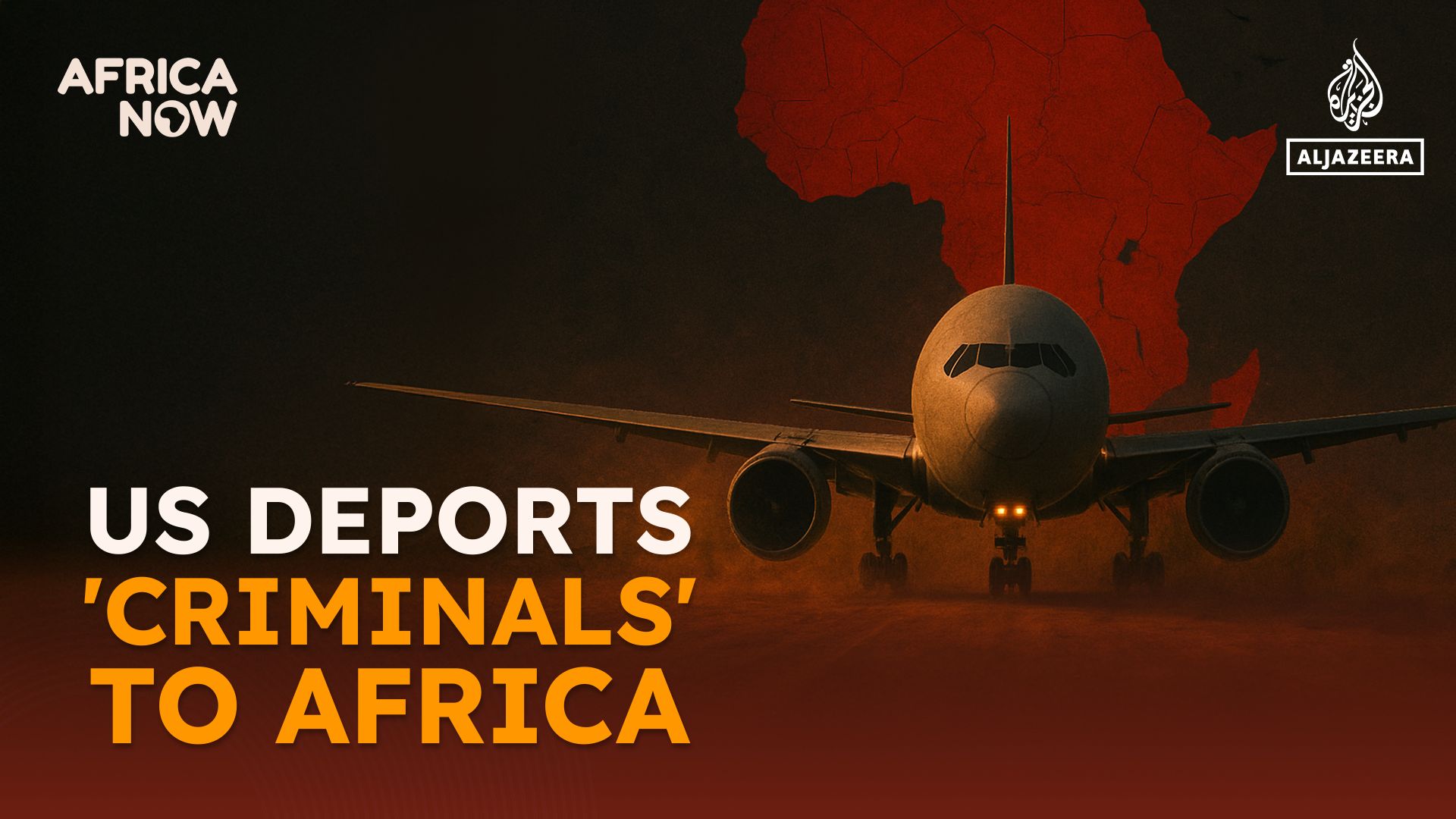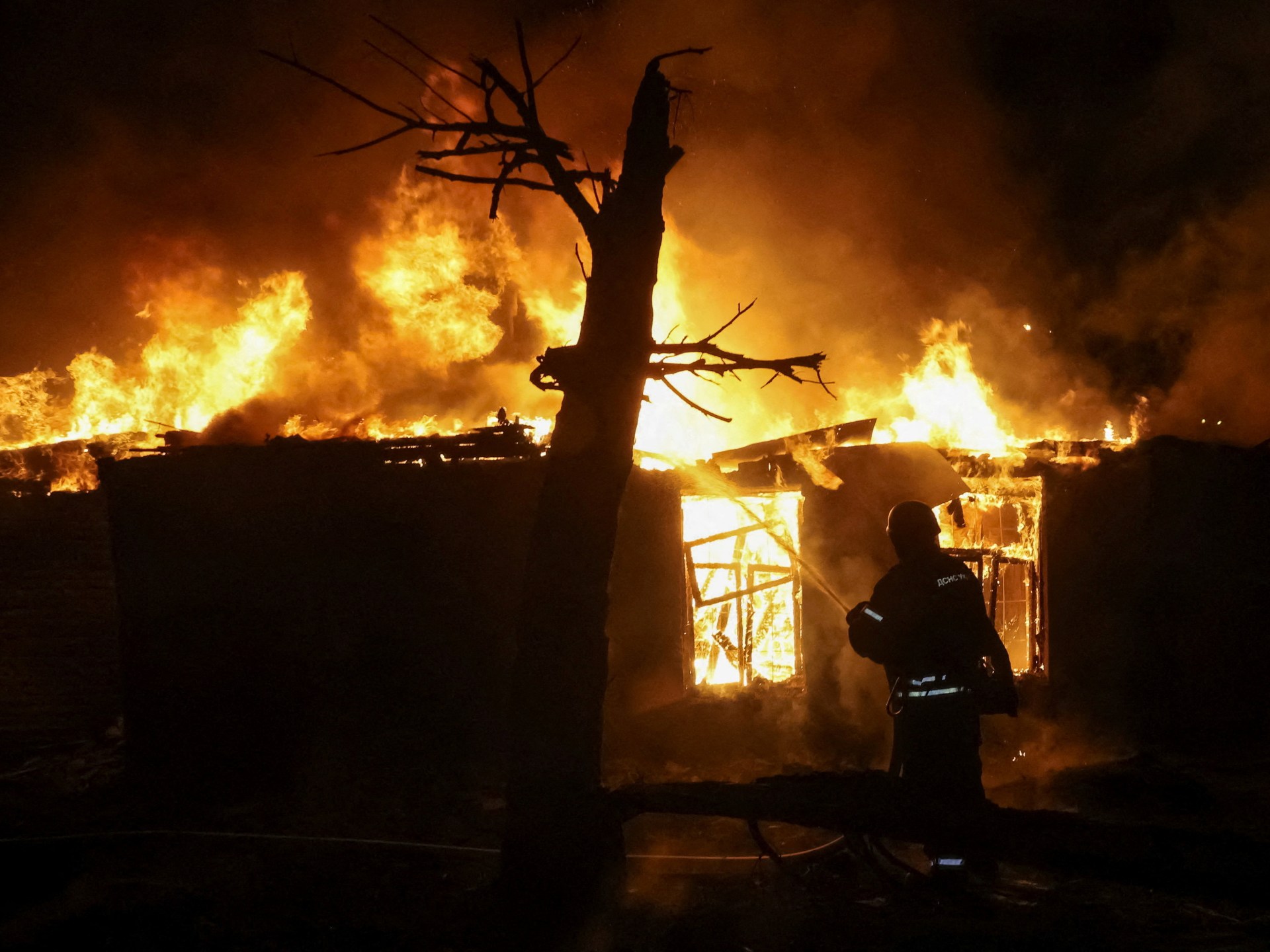A suicide bomber and gunmen killed at least three security personnel in Peshawar, Pakistan’s city, in the wake of the attack on the Federal Constabulary (FC) headquarters.
According to Peshawar Capital City Police Officer (CCPO) Mian Saeed Ahmad, “Three FC (Federal Constabulary) personnel deployed at the gate were martyred and four others were wounded,” one assailant detonated explosives and two other attackers were fatally shot by the security forces.
11 people were hurt in the attack on Monday, which came less than two weeks after a suicide attack outside a court in Islamabad that left 12 people dead.
What we currently know and why Pakistan has experienced a rise in armed attacks in recent months are listed below.
What transpired in Peshawar?
A suicide bomber detonated his explosives at the security headquarters shortly after 8am on Monday (03:00 GMT), before other assailants entered the building complex in the city center, according to local media.
According to Ahmad, the police chief, about 150 security personnel were gathered inside the headquarters for morning parade drills when the attack occurred.
He told The Associated Press (AP) news agency, “The terrorists involved in today’s attack were on foot and did not arrive at the parade area, and a much larger tragedy could have been avoided.”
He claimed that for DNA testing, authorities had taken samples of the attackers’ body parts. Without providing further information, he continued, adding that police are still conducting inquiries to determine the attackers’ nationality and identity.
The attack has ended, according to Khyber Pakhtunkhwa province’s police chief Zulfiqar Hameed, who told the AFP news agency that a clearance operation is underway to find out if any unexploded objects are present.
Where did the attack occur in Peshawar?
The Frontier Constabulary (FC) headquarters is located in Peshawar Cantonment, a garrison district that is under the Pakistan Army’s control, in a densely populated area known as Sunehri Masjid Road.
Khyber Pakhtunkhwa province’s headquarters for the FC is a paramilitary police force. The Border Military Police (BMP) and Samana Rifles (SR) joined forces in 1913 to form the larger paramilitary force.
What are the victims’ details known to us?
According to Javed Iqbal, the force’s deputy commander, three paramilitary personnel were killed in the attack.
11 people were also hurt, total. Paramilitary officials were two of them.
All 11 victims of the Peshawar attack were reportedly listed as stable, according to Asim Khan, a Lady Reading Hospital spokesperson.
Who is claiming responsibility for the attack?
No organization has accepted responsibility for the attack.
However, similar assaults in the nation, which have recently experienced a rise in such attacks, are being blamed on the Pakistan Taliban, also known as Tehrik-e-Taliban Pakistan.
Since the Taliban-led government of Afghanistan took control of Afghanistan in 2021, Pakistan claims that the Pakistan Taliban have been able to operate freely inside the country.
What became of the attackers?
The total number of attackers is still unknown. Without naming the total number of victims, AP reported that there were two suicide bombers in the attack, while AFP reported that one of the assailants was a bomber. Three suicide bombers were reportedly involved, according to Reuters.
Security forces killed two of the attackers, according to AFP, and the third assailant detonated explosives.
Three militants attempted to attack the headquarters at first. According to local newspaper Dawn, one terrorist blew himself up at the gate, and two others attempted to enter the building before being shot dead by FC personnel.
According to Ahmad, one of the attackers was killed when the suicide bomb explosives went off, and the other two were hurt and taken to the hospital.
Has Pakistan’s use of weapons increased?
In recent years, there have been more armed attacks in Pakistan.
According to the South Asia Terrorism Portal (SATP), which is maintained by London-based charity Action on Armed Violence (AOAV), the nation has recorded 1,517 “terror-related” incidents this year on November 21.
According to SATP, there were 1, 303 “terrorism-related” incidents in 2024, 921 in 2023, and 630 in 2022.
According to figures from the Center for Research and Security Studies (CRSS) in Islamabad, 2024 was the country’s deadliest year in almost a decade, with 2,526 people killed in attacks. Nearly 700 security personnel, over 900 civilians, and about 900 rebels were among the victims.
What has the government done?
In an X-post, Pakistan’s president Asif Ali Zardari denounced the attack.
President Asif Ali Zardari expresses his condolences and applauds the bravery of the security forces in response to the attack at the Federal Constabulary headquarters in Peshawar. He asserts that Pakistan’s unity, resilience, or resolve cannot be undermined by external support for Fitna-al-Khawarij.
In a statement, Interior Minister Mohsin Naqvi said the victims’ sacrifices would be remembered, according to Dawn.
No such #terrorist plots or attackers, which it appears they were, can or will weaken Pakistan’s unity, resilience, or resolve, according to Senator Sherry Rehman of the Pakistan Peoples Party in an X post.
The Federal Constabulary’s Peshawar headquarters attack is a stern condemnation. The families of the FC martyrs extend heartfelt condolences. We all applaud the brave security forces who kept a watchful eye to stop the suicide bombers from entering the building to pursue their heinous intentions…
